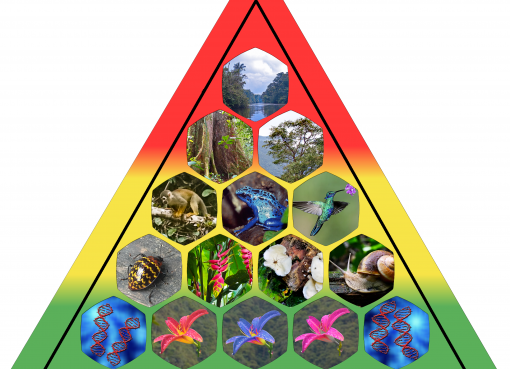The word ‘research’ in its broadest sense refers to the systematic assortment of data or information for advancement of knowledge. Although, in recent times the definition has been framed for a brief perception, in ancient times there were no such demarcation which could limit such endeavours.
Human’s very attribute ‘inquisitiveness’ tempted him to explore and dig into unknown phenomenon; sometimes necessity to ease teething troubles could also stimulate him to look for a solution. However, none could predict what would be the end outcome while pursuing their relentless ‘inquisitiveness’ to understand any event. What resulted in the never exhausting persuasion process of their interests were the miracle serendipities that stimulated likeminded ones to clutch the course. Perhaps those accidental gatherings or collection of information which are better designated by recent terms -‘inventions’ or ‘discoveries’ started to impact human lives. The impact has been so prominent that the entire human race has out-competed all other organisms on this planet in terms of their conspicuous life-style! Now, it is assured that in 21st century at least, no human would dream to go back and pursue life of a nomadic hunter-gatherer! But, these conspicuous advancements in the human life-style primarily attributed to inquisitive minds didn’t happen in a short while or neither there were any predetermined direction to this end. For instance, the first human ‘thought’ that gave birth to the idea of ‘wheel’ could have never been imagined to possess multitude of utilities in future! Zacharias Janssen, the Dutch spectacle maker who’s is said to have made the first compound microscope and Antonie van Leeuwenhoek, the Dutch businessman who pursued microbiology as his one of the favourite passion (he discovered bacteria for the first time) might have never thought that one day their intuitions could impel mankind to follow their trail. Today microscopy and microbiology are inseparable cohorts and has undergone tremendous refinement. Similarly, neither Edward Jenner knew that he would be able to find a vaccine to small-pox epidemic nor Alexander Fleming had any prior clue to his discoveries relating to ‘lysozyme’ or ‘penicillin- the wonder drug’! But, their relentless efforts toward some goal had accidentally provided exciting findings from which mankind reaped immense benefits.
The rationale behind illustration of these pieces of information is in connection with the question: “whether research should be in the direction of a direct outcome for common men or not”! To be more specific, research work directing towards an immediate outcome for common men may not be guaranteed at a short interval. However, gradual increment in the knowledge in respect of a particular theme can definitely lead to a fruitful outcome that can profit common men. In view of that I am in the opinion for providing freedom of intuitive thoughts while conducting research work by scientists. However, scientists must be aware of the concerns relating to ethics and safety of the biotic & abiotic factors of the planet!!
Dr. Anjan Barman, Asst. Professor, Department of Biotechnology, Pandu College, Ghy-12
Research is conducted using the resources of human society and so its outcome should ultimately cause benefit to the society. In fact, every research project can be viewed upon as a potential investment and mankind is entitled to its benefit. India has been spending 0.6 to 0.7 percent of its GDP on research and development, and this proportion has remained the same during the past two decades. Even though, this is quite less compared to other developing countries, it signifies a considerable input. It is definitely expected that research should disseminate the output of this investment. But it is not necessary that the final result always comes out as a useable end product.
Sectors like biotechnology, microbiology, ethno-botany, etc. can directly lead to the development of drugs and antibiotics that can save millions of lives worldwide. But the end product of branches such as aquatic ecology, forestry and wildlife are different and are related more to the conservation of ecosystem services, which cannot be always economically evaluated. However, this does not mean that these are less relevant. The value of such ecosystem services might surpass the value of any new drug or scientific product/technique in terms of necessity. This can be well understood by the fact that certain ecosystem services play an important role in sustaining livelihoods. All the braches of science are equally capable of contributing to the society; the pathways are different. It all depends upon how the benefits are propagated.
The outcome of research should never remain confined to conferences and publications. But the success of every research work must not be always judged in terms of what it has directly done to the society. Sometimes, the results of one investigation might lead to another that could be far more relevant in terms of causing societal benefit. It can also add to the previously existing pool of knowledge. Thus, the success of research cannot always be judged in terms of direct material benefit it yields to the society.
Every branch of science has tremendous potential to cause the benefit of the society. It all depends upon how it is tapped and utilized. The contribution might not always be reflected as a useable or commercial end product or technique. It could be in the form of conservation of a particular resource or knowledge for future researchers. In this context, the extent of financial investment is not the only factor that determines the viability of scientific research. The steps taken to transfer the results of research form laboratory to the grassroots of the society are important determinants. It is also equally important that the research benefits the scientific community because the scientific community is also a component of the human society. The ultimate contribution might not always be in the form of a material end product.
Dr. Himangshu Dutta, PhD, Assam University, Silchar, Assam. Pin: 788011
Research means a pathway to know and develop something new for the existence of life. Even a small curiosity can create a great research. There are many major examples of researches in our history, which were mostly borne out by chance rather than by choice. The term ‘common people’ is itself a controversial statement to divide our humanity, which separates the mankind into different segments of upper and lower sub-divisions of status, knowing or unknowingly. Every individual in this earth belongs to the category of ‘common people’ but some might separate themselves on the basis of advance work status or according to their faith in their intelligence. As per the topic demands; Yes, the outcome of every research work must reach to the common people as an end-product, directly or indirectly from the researcher because of the regular demands in the society and also to let others learn, earn and turn the existing research ideas into some advance innovative inventions.
Curious minds are a major factor in the regular research oriented ideologies with good and not so good innovations, which sometimes becomes disastrous to the mankind. These types of researches are kept secret by the researchers or the authorities from the people. Someone might disagree with my opinion of delivering all research to the common people.I agree with the point of internal securities of nations and many more clauses, but I just wish if all were so clear and free. I wish if all the humans happened to be just one single society and no countries, states, castes and creeds.
Furthermore, with respect to the noble researches done by our honourable scientists, we highly appreciate them, and anticipate more robust and peaceful ideas to be accomplished. After all, the funds for the researches done in an developing country like India come from the hard-earned, tax payer’s money. At last, as a common man, I would like to thank the researchers who have devoted many important moments of their life to succour the common life of the entire humanity.
Priyanka Sarkar, PhD Scholar, IASST, Life Science Division & Dept of Bioengineering, GUIST, Gauhati University
Want to share your view?
Viewpoint topic for next issue of BioNE is – “Rather than exploring the non-renewable natural resources, the focus of our research should be mainly on renewable resources.”
Please mail us your view point at bione@vetbifg.ac.in




